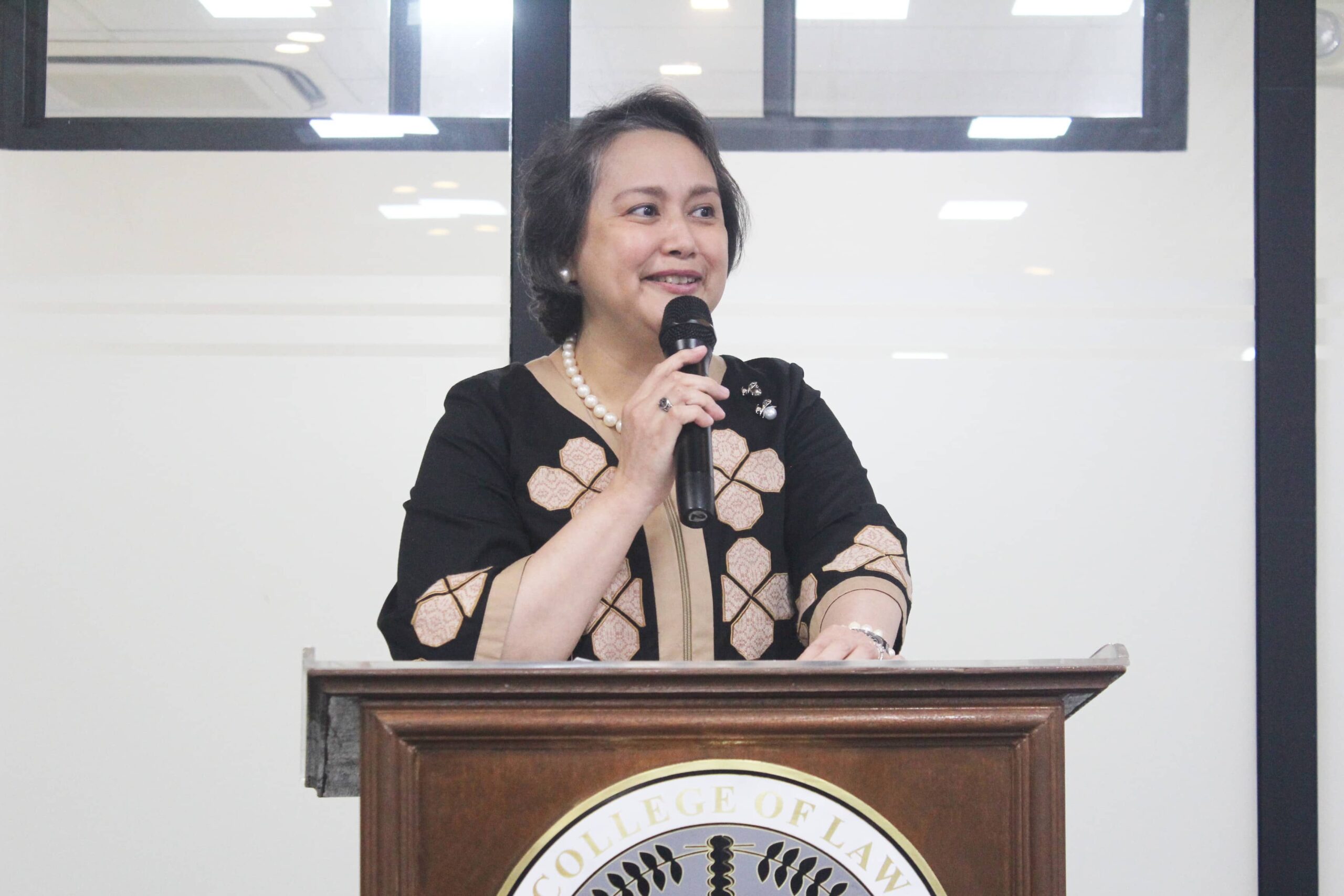The University of the Philippines Law Center (UPLC), through its Information and Publication Division, launched Atty. Sandra Marie Olaso-Coronel’s “May It Please The Court 2: Tips for Law Enforcement” at UP Diliman’s Bocobo Hall on January 22.
This book is UPLC’s latest publication. It follows the success of the bestselling book “May It Please the Court: Litigation Tips,” also by Olaso-Coronel.
“This book advocates a change in mindset of law enforcement, from one of targeting that a case be closed by its acceptance by the prosecutor to seeing a case through to the conviction of the accused,” Olaso-Coronel said during the launch.
“It is an advocacy built through more than 25 years of litigation practice, during which I was privileged to have worked with prosecutors from the Department of Justice (DOJ) and law enforcement officials from various agencies,” she explained.
“It is my submission that because the level of evidence required for conviction is much higher than that required for the filing of a case with a prosecutor, law enforcement officials should wonder how the prosecutor would be able to prove the guilt of the accused beyond reasonable doubt during trial if the evidence provided to him only amounts to probable cause,” she added.
“This book discusses how law enforcement can provide the prosecutor with evidence sufficient to convict even as early as during case referral.”
“The book highlights the need to know the rules that govern court proceedings for a clear understanding of what kind of evidence is needed to convict and overthrow the constitutionally guaranteed presumption of innocence he has in his favor, consistent with the principle that an accusation by the State is not synonymous with guilt.”
In his speech, UP President Angelo Jimenez said he did not expect Olaso-Coronel to be in the field of litigation as he explained that in their college days, the author had other endeavors.
Jimenez believes that his contemporary’s new book is set to become a go-to resource for law students, lawyers, law enforcers, and the general public. “This is arguably another important contribution to the realm of legal literature,” the University President said.
“An understanding of the intricacies of law enforcement, rights, and duties enables citizens to interact with the police and law enforcement agencies more effectively. More than that, it gives them the confidence to articulate their constitutional rights and contribute to a fair and proactive legal process,” he added.
“Citizens who are familiar with criminal procedures are more likely to recognize potential [instances of] miscarriage of justice. The knowledge could contribute to preventing wrongful conviction by encouraging the scrutiny of evidence, witness testimonies, and legal arguments. A citizenry that is well-informed of their rights within the framework of legal process is vital, needless to say, to a thriving democracy.”
UP College of Law Dean Darlene Marie Berberabe assured stakeholders of her College’s continued commitment to live up to one of its mandates of providing invaluable resource for law enforcement agencies “to guide its efforts towards becoming highly capable, effective, and credible.”
“As we continue to raise the legal literacy of our people and uphold transparency, accountability, and good governance, be assured that the [UPLC] will consistently produce publications and resources that are relevant and insightful. This will be one of our focus areas for this year,” Berberabe said.
Retired Supreme Court Associate Justice Francis Jardeleza, Sandiganbayan Associate Justice Karl Miranda, retired Makati City Regional Trial Court Judge Augusto Jose Arreza, and DOJ Senior Deputy State Prosecutor Richard Fadullon served as reactors of the said book.
Jardeleza praised Olaso-Coronel for her work. “[She] has written a superb piece of scholarship that will serve as a guide for the law enforcement prosecutor [and] a veritable trial handbook for the Filipino lawyer,” Jardeleza said in his foreword for the book.
During the launch, the former magistrate said that he is confident that “the book will be a bestseller.” “Many defense counsels will buy it,” he said in Filipino.
Since 1963, the UPLC has been working towards making the law more accessible to students, law practitioners, government agencies and administrators, and discerning readers to fulfill its public service mandate. — with reports from Rex Espiritu

